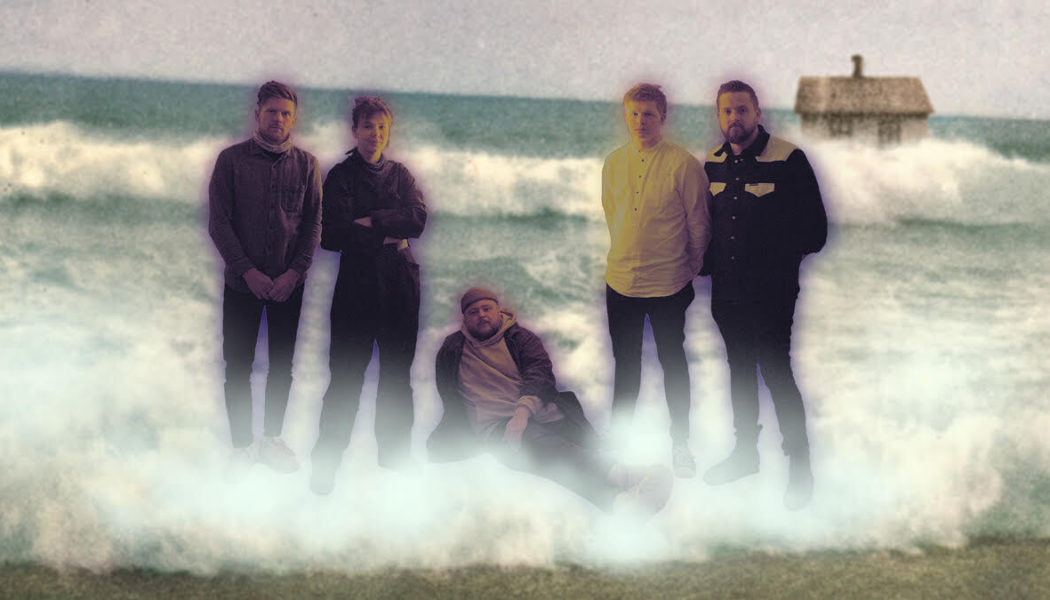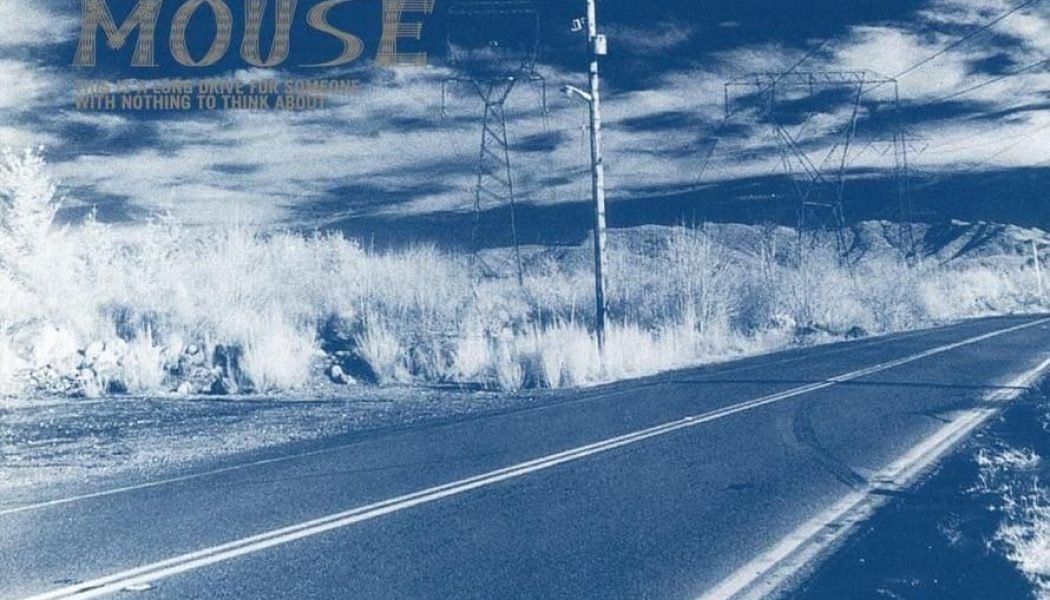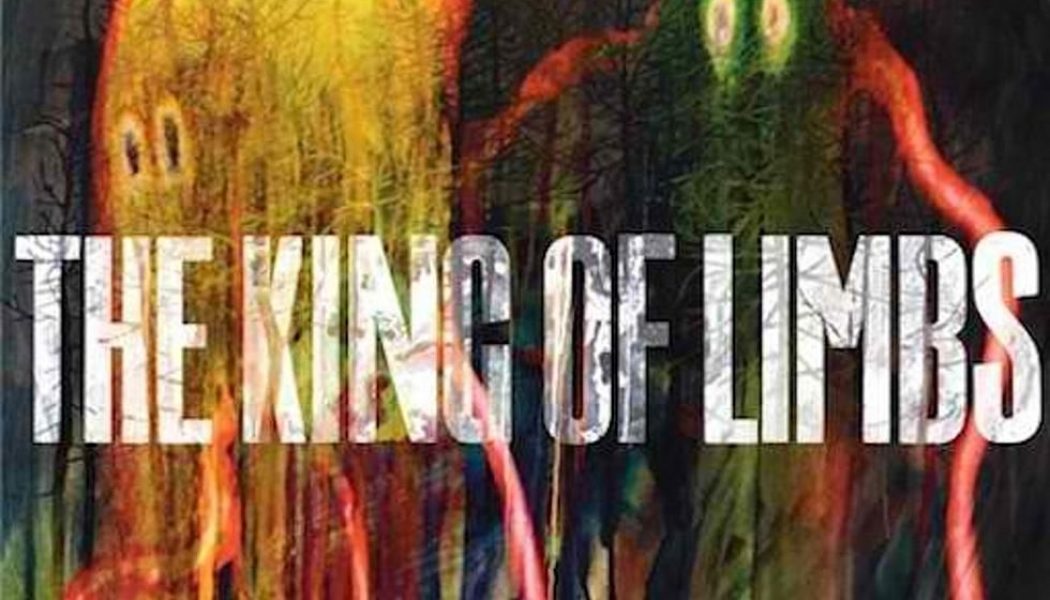Are These Classics Yet?
good kid, m.A.A.d city at 10: How Kendrick Lamar’s “Swimming Pools” Helped Me Get Over My Own Toxic Relationship
Great albums are about more than the music. When they really hit, just mentioning their names evokes memories and elicits “Remember when…” conversations. good kid, m.A.A.d city — released on October 22nd, 2012 — is one of those albums, which is why its 10-year anniversary is a very big deal. Kendrick Lamar became a household name on the strength of everything he did on this album, while possibly becoming the voice of a generation at the same time. He got into our bloodstreams through touching topics that meant a lot to him, while hoping we related. I related in a way I never predicted and 10 years later, I understand how important just one song was because it truly changed my world in a way no piece of music ever has nor probably ever will. Addiction sucks. I’m pretty sure I’m not blowing ...
Purity Ring’s Shrines Turns 10: How the Debut Laid a Masterful Foundation for the Future of Pop
Purity Ring‘s Megan James and Corin Roddick describe their debut album, Shrines, as one with very strict rules. “All the drums sound a certain way, all the vocals sound a certain way, all the synths… we created a strict palate of things that sort of worked together and tried to make as many different kind of musical ideas within that palette,” Roddick tells Consequence. Indeed, Shrines — which celebrates its tenth anniversary today, July 20th — is an album that represents Purity Ring operating with only their essentials, forging a path that would later define the sound of modern pop, if only for a portion of the last decade. When you look at Purity Ring’s output following Shrines (2015’s Another Eternity, 2020’s WOMB, and most recently, their EP Graves, which ...
Purity Ring’s Shrines Turns 10: How the Debut Laid a Masterful Foundation for the Future of Pop
Purity Ring‘s Megan James and Corin Roddick describe their debut album, Shrines, as one with very strict rules. “All the drums sound a certain way, all the vocals sound a certain way, all the synths… we created a strict palate of things that sort of worked together and tried to make as many different kind of musical ideas within that palette,” Roddick tells Consequence. Indeed, Shrines — which celebrates its tenth anniversary today, July 20th — is an album that represents Purity Ring operating with only their essentials, forging a path that would later define the sound of modern pop, if only for a portion of the last decade. When you look at Purity Ring’s output following Shrines (2015’s Another Eternity, 2020’s WOMB, and most recently, their EP Graves, which ...
Of Monsters and Men Reflect on the “Beautiful, Dark Forest” of My Head Is an Animal at 10
It’s been a decade since Of Monsters and Men released their debut album My Head Is an Animal in their home country of Iceland in September 2011. The success of the LP and its rollicking lead single “Little Talks” led to a deal with Republic Records, over a million records sold, a permanent spot on the festival circuit both in Europe and Stateside, and an enduring, fervent fanbase. “It’s a super special album,” Ragnar (“Raggi”) Þórhallsson, the group’s co-lead vocalist/guitarist, tells Consequence over Zoom. “I’ve always cared for it — the simplicity of it is that it’s hard to create something simple and beautiful, and I think that album is that.” Released internationally in April 2012, My Head Is an Animal grabbed listeners not just for its catchy melodies, but for the group’s sense of adv...
Modest Mouse’s This Is a Long Drive for Someone with Nothing to Think About Distilled Suburban Angst into an Indie Rock Tour de Force
<span class="localtime" data-ltformat="F j, Y | g:ia" data-lttime="2021-04-16T12:45:29+00:00“>April 16, 2021 | 8:45am ET Editor’s Note: Modest Mouse’s first album — that one with the really long title — came out 25 years ago this week and changed the landscape of indie rock forever. We welcome author Bryan C. Parker in his Consequence debut as he looks back at the sad, angsty beginnings of Isaac Brock’s Issaquah, Washington, outfit. Modest Mouse’s 1996 debut album, This Is a Long Drive for Someone with Nothing to Think About, mapped a blueprint for one of the most successful careers in indie rock. The wandering guitar line, woozy note bends, and staggering drums that announce the record, combined with frontman Isaac Brock’s gravelly bark, forged an inim...
Foo Fighters’ Wasting Light Remains a Late-Career Statement 10 Years Later
<span class="localtime" data-ltformat="F j, Y | g:ia" data-lttime="2021-04-12T15:15:35+00:00“>April 12, 2021 | 11:15am ET Editor’s Note: On April 12th, 2011, Foo Fighters put out their seventh album, Wasting Light. At the time, Dave Grohl saw it as a chance for the band to get back to the project’s humble garage roots. Now, a full decade later, Grant Sharples examines just how successful the band were in achieving Grohl’s aim and what the record ultimately meant for the veteran band and their fans. Starting with 2005’s In Your Honor, alt-rock icons Foo Fighters have adhered to certain underlying concepts for their records. These aren’t narrative concepts but musical ideas by which Dave Grohl and co. creatively orient themselves. On their fifth reco...
10 Years Ago, The Strokes Triumphed Through Adversity to Create Angles
Throughout the 2000s, New York quintet The Strokes were considered the kings of post-punk revival. Drawing from artists like The Doors, Jane’s Addiction, Pearl Jam, Bob Marley, and most notably, The Velvet Underground, their charming indie/garage rock raucousness was virtually everywhere for several years. Of course, it all started when they inspired their own set of peers and protégées — including LCD Soundsystem, The Killers, and Kings of Leon — while skyrocketing into critical and commercial favor with 2001’s debut LP, Is This It, which topped our list of “The Top 100 Albums of the Decade” in November 2009. Although 2003’s Room on Fire and 2005’s First Impressions of Earth weren’t as widely celebrated by the press — due mainly to a perceived lack of newness and a penchant for safe...
The King of Limbs Remains a Crucial Piece of the Radiohead Puzzle
Editor’s Note: Radiohead’s The King of Limbs came out on February 18th, 2011, to strong sales but mixed criticism. A decade later, our own Jordan Blum revisits the band’s eighth studio album and its gradual journey toward the heart of many fans. For more articles like these, check out our Are These Classics Yet? series. People have often said that Radiohead are the last great rock band. While that may be an unfair and hyperbolic assessment — especially since they frequently defy categorization — it’s certainly an understandable one. After all, no other group in the last 30 years have managed to fully sustain their integrity amidst achieving endlessly admirable evolutions and perpetually outstanding commercial and critical reception. In that sense, they’re like a modern-day Bea...
Adele’s 21 Brought Sincerity to Pop Music When It Needed It Most
Editor’s Note: Consequence has been around long enough that so many of the new albums that originally turned us on to music are now celebrating their first milestone anniversaries. As we begin to reflect on these records, you can catch our updated assessments here. It’s September 2011, and London’s breathtaking Royal Albert Hall is filled with over 5,000 music fans. (Oh, how I miss live music.) On stage, a 23-year-old Adele has the undivided attention of every eye, every ear, every soul, as she tells the story of “Someone Like You,” the overwhelmingly successful second single from her sophomore album, 21. “I didn’t have that one song that I believed myself on…that one song that moved me,” she explains to the crowd. “And it’s important that I do feel like that … so I have the confidence to ...
Arctic Monkeys’ Whatever People Say I Am, That’s What I’m Not Takes Us Back to Their Garage Days
Editor’s Notes: Consequence has been around long enough that so many of the new albums that originally turned us on to music are now celebrating their first milestone anniversaries. As we begin to reflect on these records, you can catch our updated assessments here. “I just wanted to be one of The Strokes,” Arctic Monkeys’ vocalist Alex Turner sings on the opening line of Tranquility Base Hotel + Casino. It’s a somewhat ironic statement. The Sheffield indie rockers’ most recent album sounds nothing like The Strokes, especially the opening track “Star Treatment”. The 2018 record is infused with a lounge-jazz, yacht-rock persona with songs that follow Odyssean orbits rather than traditional verse-chorus patterns. With the Arctic Monkeys that fans are familiar with now, going back to their 20...
The Decemberists’ The King Is Dead and the End of the Americana Craze
Editor’s Notes: Consequence has finally been around long enough that so many of the new albums that originally turned us on to music are now celebrating their first milestone anniversaries. As we begin to reflect on these records, you can catch our updated assessments here. The first time I heard Mumford & Sons was at the 37th Telluride Bluegrass Festival. I was 14, had just finished middle school, and was in a band that played shitty covers of Audioslave and Death Cab for Cutie in our drummer’s basement. I wasn’t exactly a music doyen, but I remember everyone around me, even my parents — Telluride had become something of a family pastime — were impressed by the set. There was something undeniably endearing about Marcus Mumford’s gravelly baritone, his black vest (soon to become a stap...



















